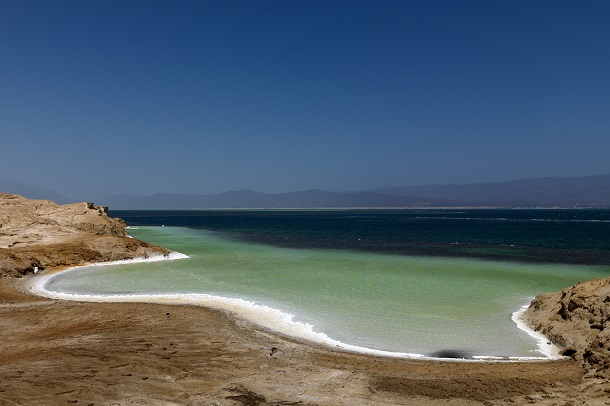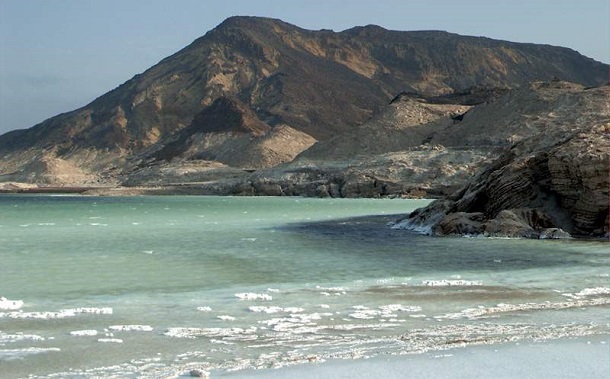Africa is blessed with lakes by nature but Lake Assal in central-western Djibouti is of exceptional beauty making it one the most visited lakes in Africa by tourists all over the world.
The lake is shallow in nature and specifically found at the western end of Gulf of Tadjoura in the Tadjoura Region, touching Dikhil Region as far as the top of the Great Rift Valley. It is not very far from the national capital Djibouti city. It is some 120 km from Djibouti City.
Lake Assal is a saline (salt) lake which lies 155 m below sea level in the Afar Triangle, making it the lowest point on land in Africa and the third lowest land depression on Earth after the Dead Sea and Sea of Galilee in Israel.
It gorgeous beauty makes its saline surface glittered in the sun which looks like fields of black volcanic lava exploded fresh. It looked like a landscape from the dawn of time when nature was probably created in its virgin form.
Water or aquatic experts say there is no outflow from the lake and due to high evaporation; the salinity (salt) level of its waters is ten times that of the sea, making it the most saline in the world after Don Juan Pond in Victoria Land, Antarctica.
The United Nations Education Scientific and Cultural Organization are working in collaboration with the Government of Djibouti to initiate a proposal with the world organ body to declare the Lake area a zone of volcano World Heritage Site. Preparation for this initiative is far advance d and if achieved, would confirm the lake’s tourism supremacy on the African continent.
The Lake also brings some economic benefit to the people of Djibouti and if you want to see how salt is made, Lake Assal is your ideal destination.
It is one of the world’s largest salt reserves which are exploited under four concessions awarded in 2002 at the southeast end of the lake.
The major share of production of the salt is nearly 80% , and is being held by Société d’Exploitation du Lac and Société d’Exploitation du Salt Investment S.A de Djibouti.
Maybe, you can convince your government to start importing salt from the Lake Assal salt site. That is, if your government would agree. This is just a joke I am sharing with you.
In Djibouti, the lake is considered a national treasure it has been incorporated in the protected zone under the law No. 45/AN/04/5L of the National Environmental Action Plan in the year 2000.
However, this particular law does not define the clear boundary limits of the lake as the lake runs into the territory of Ethiopia.
The total catchment area of the lake is 900 km2 and the total water volume is also estimated to be some 400 million cubic metres of water.
Close by the lake lies the Danakil Desert, and the climate combining that of the lake and the desert puts the temperatures as high as 52 °C from May to September. Winter temperatures are not low at 34 °C from October to April when high humidity marks the season with the coastal area experiencing rainfall. This indeed is an ideal place for tourists all over the world.
Issaka Adams / NationalTurk Africa Tourism News
[adrotate group=”15″]



